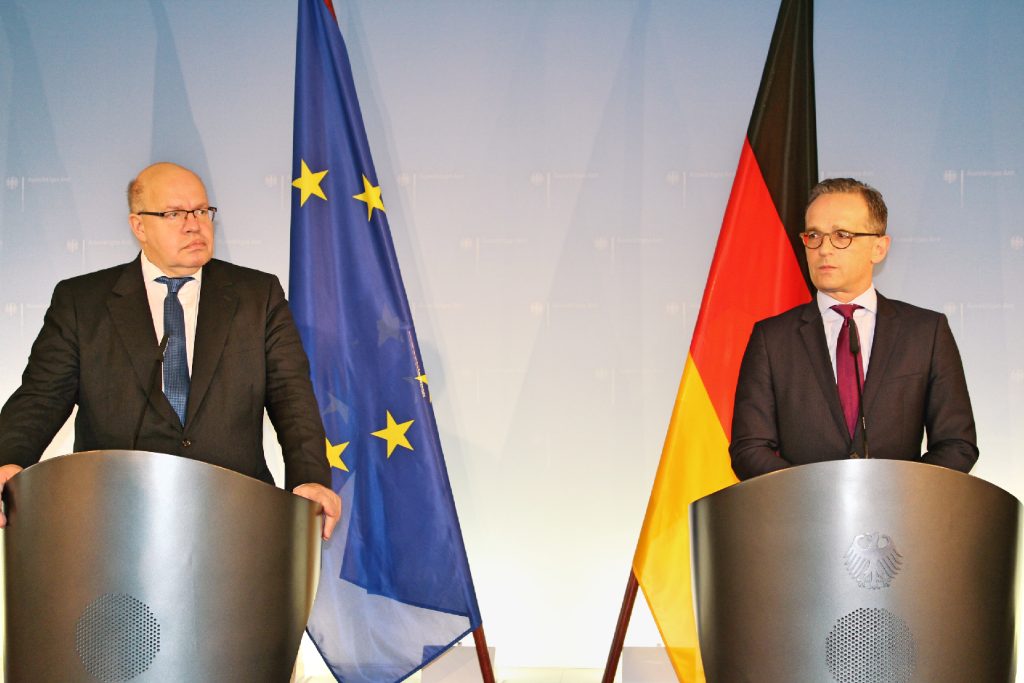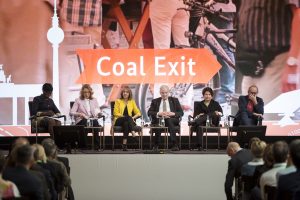With people losing livelihoods, and with the likelihood of violent conflicts increasing due to the effects of climate change, the 5th Berlin Energy Transition Dialogue has called for a strong, mindful leadership that will address the challenges.
Speaking at the start of the 5th Berlin Energy Transition Dialogue (BETD) on Tuesday, Joe Kaeser, President and Chief Executive Officer of Siemens said, solving the energy problem that has resulted in climate change is a global matter that needs to be solved globally, with all countries playing a part.
“We have a responsibility for 8 billion people. No one said solving the problem will be easy. It’s not easy. But we have to do it. If we do what we have to do the world will notice, not only on Fridays but every day,” he said, making reference to the Fridays for Future, also known as School Strike for Climate, an international movement of school students who do not to attend classes on Fridays, and instead take part in demonstrations to demand action to prevent further global warming and climate change, as inspired by 16 year old Greta Thunberg.
To meet the goals of the UN Paris Agreement, decision makers from across the world have gathered in Berlin, Germany to identify best practices necessary for an efficient, rapid energy transition from fossil fuels like coal, to renewable energy.
Peter Altmaier, the German Federal Minister for Economic Affairs and Energy said a successful energy transition needs to be conceived globally and holistically. The holistic approach Altmaier said requires the energy shift to be successful in all sectors, and the socio-economic elements to be taken into account throughout.
The energy transition is a successful model attracting increasing international attention, given technological developments and innovations available. A huge range of tried-and-tested technologies are being used in more and more countries to facilitate clean energy supplies and create prosperity while protecting resources and the climate, as the energy transition is not merely a shift from fossil fuels to renewable energy.
During the event that attracted 50 ministers and high-level delegates, industry players and civil society representatives from over 100 countries; constituting over 2000 guests, Heiko Maas, the German Federal Minister for Foreign Affairs said the energy transition is also upending political constants. Maas further explained that using renewable energy enables states to improve their own energy security.
“Energy is losing its potency as the geopolitical instrument we have known for decades,” he said. Adding that countries that are transforming their energy economy can be more independent in pursuing their strategic and foreign-policy interests.
Sharing Maas’ sentiments, at the side-lines of the BETD, Francesco La Camera, Director General of the International Renewable Energy Agency (IRENA) said the shift towards renewables makes sense. By mid-century, he expounded that the global economy would be larger, and jobs created in the energy sector would boost global employment by 0.2 percent. Policies to promote a just, fair and inclusive transition he also said could maximise the benefits for different countries, regions, and communities, consequently accelerating the achievement of affordable and universal energy access.
Globally, a transition to a more sustainable system of energy is happening. Such a transition not only supports climate protection but also offers numerous economic benefits. To a large extend this transition has been prompted by the rapid decrease in costs for renewable energies –a development which, in turn, raises various questions about the future of countries and regions that rely heavily on the production, processing and export of fossil fuels.
“The global energy transformation goes beyond a transformation of the energy sector. It is a transformation of our economies and societies,” he said.
As the urgency to take climate action grows, a new analysis by IRENA titled ‘Global Energy Transformation: A Roadmap to 2050’, which was launched on Tuesday at the BETD, found that scaling-up renewable energy combined with electrification could deliver more than three quarters of the energy-related emission reductions needed to meet global climate goals. According to the report, pathways to meet 86 percent of the global power demand with renewable energy exist.
The renewable energy transition has inspired dialogue across the world as it is considered the most effective and readily-available solution for reversing the trend of rising CO2 emissions.
The ongoing two day BETD event is coupled by the Berlin Energy Week which consists of side-events before and after the conference. It is hosted by the Germany Federal Government in partnership with the German Renewable Energy Federation and the German Solar Industry Association.
In the past years the Berlin Energy Transition Dialogue (BETD) has become a leading international forum for key stakeholders of the energy sector. This year, it will be complemented by the Tech Festival of the Start Up Energy Transition (SET) initiative, the hub Berlin, the Future Mobility Summit, the Future of Offshore Windpower, the Drawdown Europe, the IDTechEx, the Electric Vehicles and the German Business Initiative for Energy Efficiency (DENEFF).
-END-





